In the heart of Tashkent stands a palace renowned for its exquisite design and enigmatic past—the residence of Prince Nicholas Romanov. More than just a home, this historic landmark has witnessed dramatic twists of fate. In our article, discover why Nicholas Konstantinovich Romanov, the grandson of a Russian emperor, was exiled to Tashkent and how he lived out his days in this captivating city.
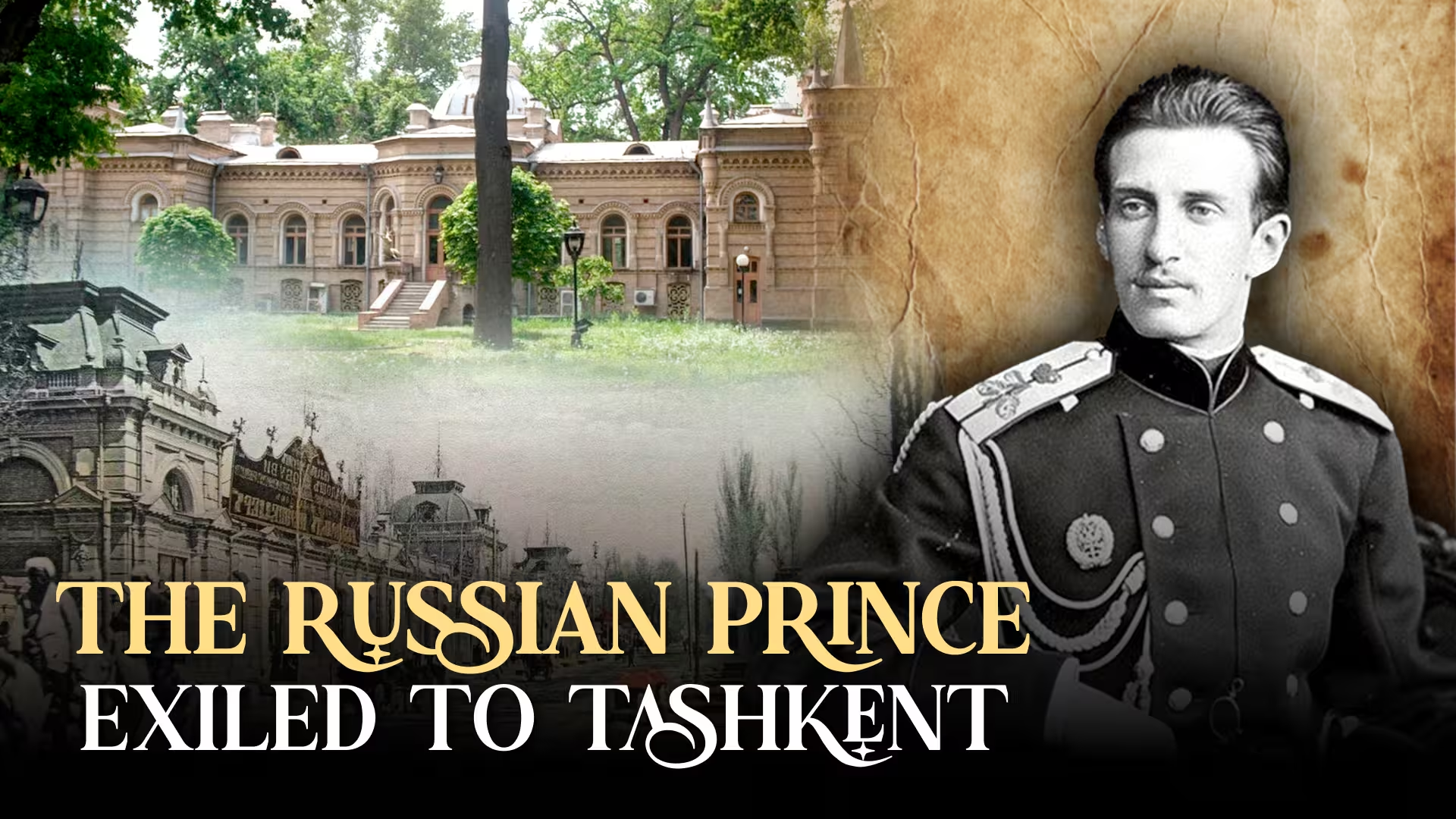
Early Life of Prince Nicholas Konstantinovich
Prince Nicholas Konstantinovich was born on January 2, 1850, in St. Petersburg, into the family of Prince Konstantin Nikolayevich, the brother of Russian Tsar (emperor) Alexander II. As the eldest child in the family and the grandson of Nicholas I, he was destined for a distinguished life.
In 1868, driven by his own ambition, he enrolled in one of the Russian Empire’s most prestigious military institutions—the General Staff Academy (officially known as the Emperor Nicholas General Staff Military Academy). Upon graduation, he became the first member of the Romanov dynasty to receive a higher military education. Excelling in his studies, he was among the top graduates and was awarded a silver medal.
Following his graduation, Nicholas embarked on a journey across Europe, where he developed a passion for Western European art and began amassing an impressive collection. Upon his return, he joined the elite Life Guards Horse Regiment, one of the empire’s most prestigious military units, and at just 21 years old, he was appointed squadron commander.
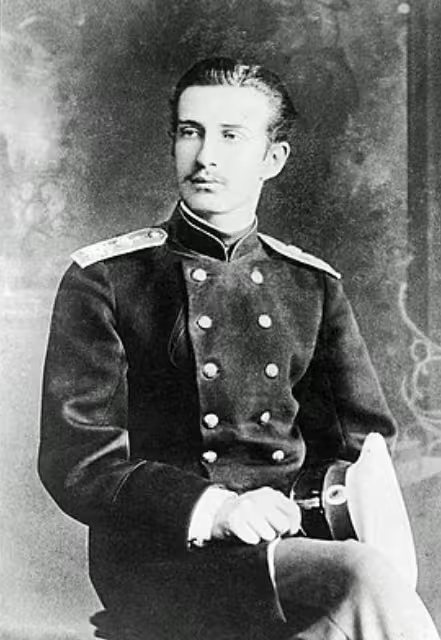
It was during this period that he met Fanny Lear (real name: Harriet Blackford), an American dancer, at a grand ball. Though they were of the same age, Fanny had previously been married and had a young child. Nicholas fell deeply in love with her, causing great concern for his family. His relationship with Fanny was considered scandalous, bringing disgrace to the imperial household.
In an attempt to separate his son from the controversial affair, Prince Konstantin Nikolayevich arranged for Nicholas to be sent on a military campaign to Khiva in 1873. The campaign ended in victory, with the Khiva Khanate becoming a Russian protectorate. Nicholas returned from the campaign unharmed and was awarded the Order of St. Vladimir, 3rd degree, for his service.
However, the prince’s rebellious nature persisted. Soon after his return, he set off on another journey to Europe—this time accompanied by Fanny Lear. As he traveled, he continued expanding his collection of European art, indulging his passion despite his family's disapproval.
Theft and Exile
In April 1874, a scandal shook the Romanov family when Princess Alexandra Iosifovna discovered that three diamonds had vanished from a sacred icon in the Marble Palace. These icons, gifted to her as a wedding present by Emperor Nicholas I, were of immense personal and religious significance.
The missing diamonds surfaced at a pawnshop in St. Petersburg, leading investigators to the individual who had pawned them—Evgeny Petrovich Varpakhovsky, adjutant to Prince Nicholas Konstantinovich. However, Varnakhovsky adamantly denied any wrongdoing, insisting he had merely followed the prince’s orders.
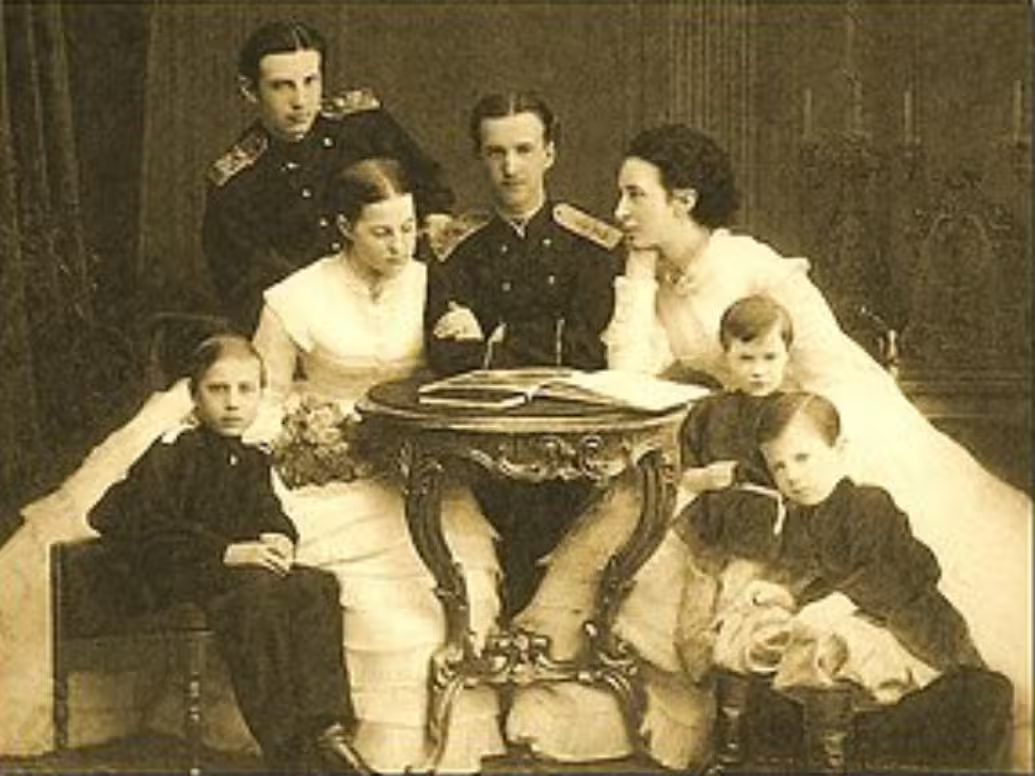
When confronted, Nicholas Konstantinovich placed his hand on the Bible and swore his innocence, but his family and investigators remained unconvinced. Emperor Alexander II intervened, assigning Count Pyotr Shuvalov, head of the gendarme corps, to personally oversee the inquiry. After three hours of interrogation at the Marble Palace, the prince finally confessed—he had stolen the diamonds to fund extravagant gifts for his lover, the American dancer Fanny Lear.
A family council was convened to determine his fate. Concerned about protecting the imperial family's reputation, they reached a decision that would minimize public scandal. Officially, Nicholas Konstantinovich was declared mentally ill, based on fabricated medical reports. By imperial decree, he was exiled from the capital for life. Meanwhile, Fanny Lear was expelled from Russia and permanently banned from returning.
The prince effectively received two sentences:
- The official punishment: He was deemed insane and legally incompetent, with all his property placed under state guardianship. This ruling was publicly justified by medical experts.
- The secret punishment: His name was erased from all official records of the imperial house. Stripped of his titles, honors, and inheritance, he was removed from military service lists. His legacy was to be buried in silence.
Banished from St. Petersburg, Nicholas Konstantinovich was condemned to live only in locations designated by the government, under constant surveillance.
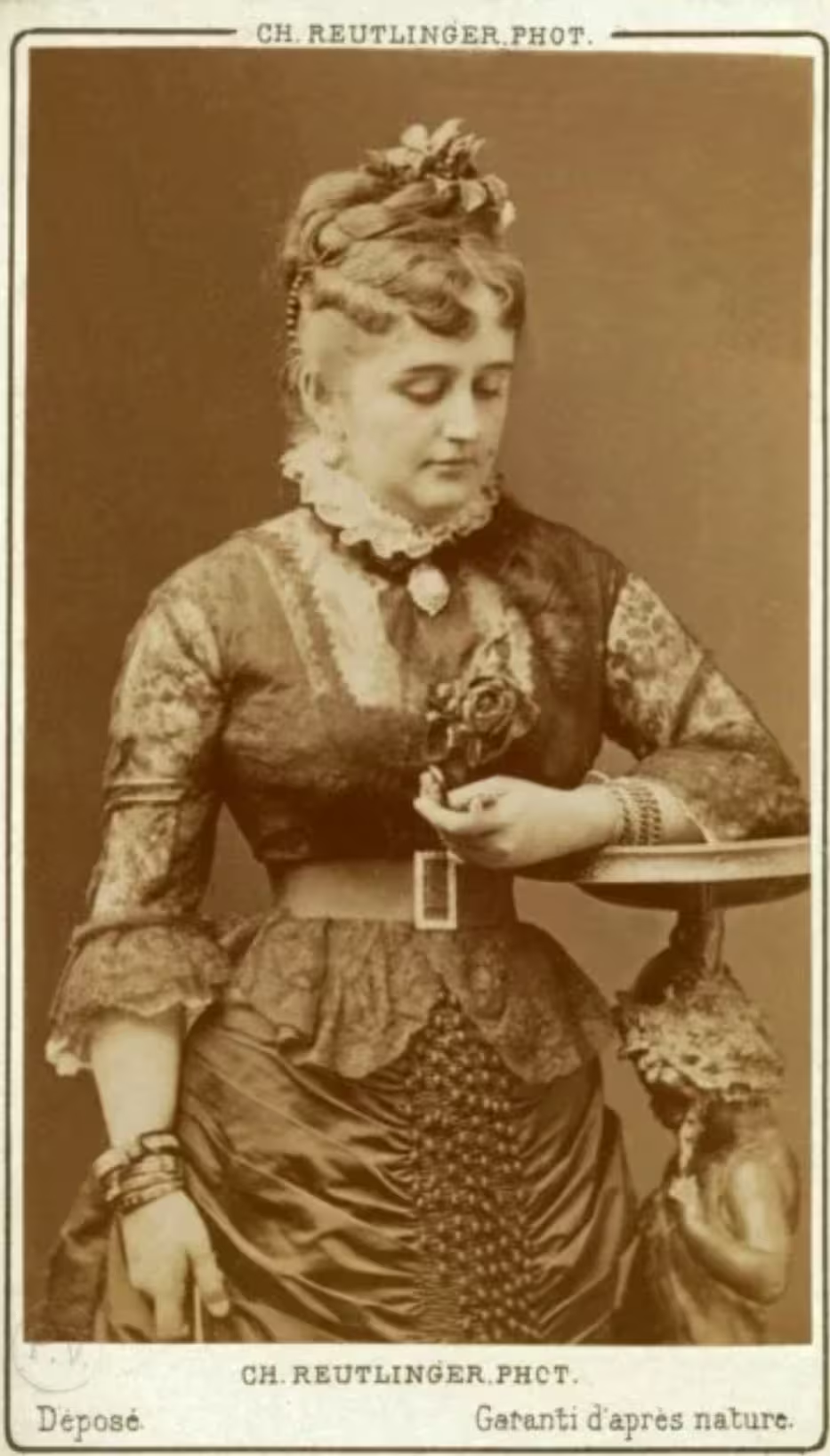
Exile to Tashkent and Family Life
In the fall of 1874, Prince Nicholas Konstantinovich was forcibly removed from St. Petersburg. Over the next seven years, he was relocated at least ten times, prevented from establishing roots or acquiring property. By the summer of 1881, his exile became permanent—Emperor Alexander III ordered his complete banishment to Central Asia, sending him to Tashkent, the administrative center of the Turkestan Governor-General.
Upon arrival, Nicholas lived under the alias Colonel Volynsky before later adopting the name Iskander, which was eventually sanctioned by the emperor. His descendants would later be known as the Princes of Iskandariy.
Despite the restrictions placed upon him, Nicholas Konstantinovich thrived as an entrepreneur. He invested in the region’s most profitable industry—cotton processing—establishing multiple ginning factories. Since he was legally barred from owning property, all his enterprises were registered under his wife’s name. His business acumen proved highly successful, generating an annual income of RUB 1.5mn—vastly exceeding the RUB 200,000 annual allowance he received from St. Petersburg.
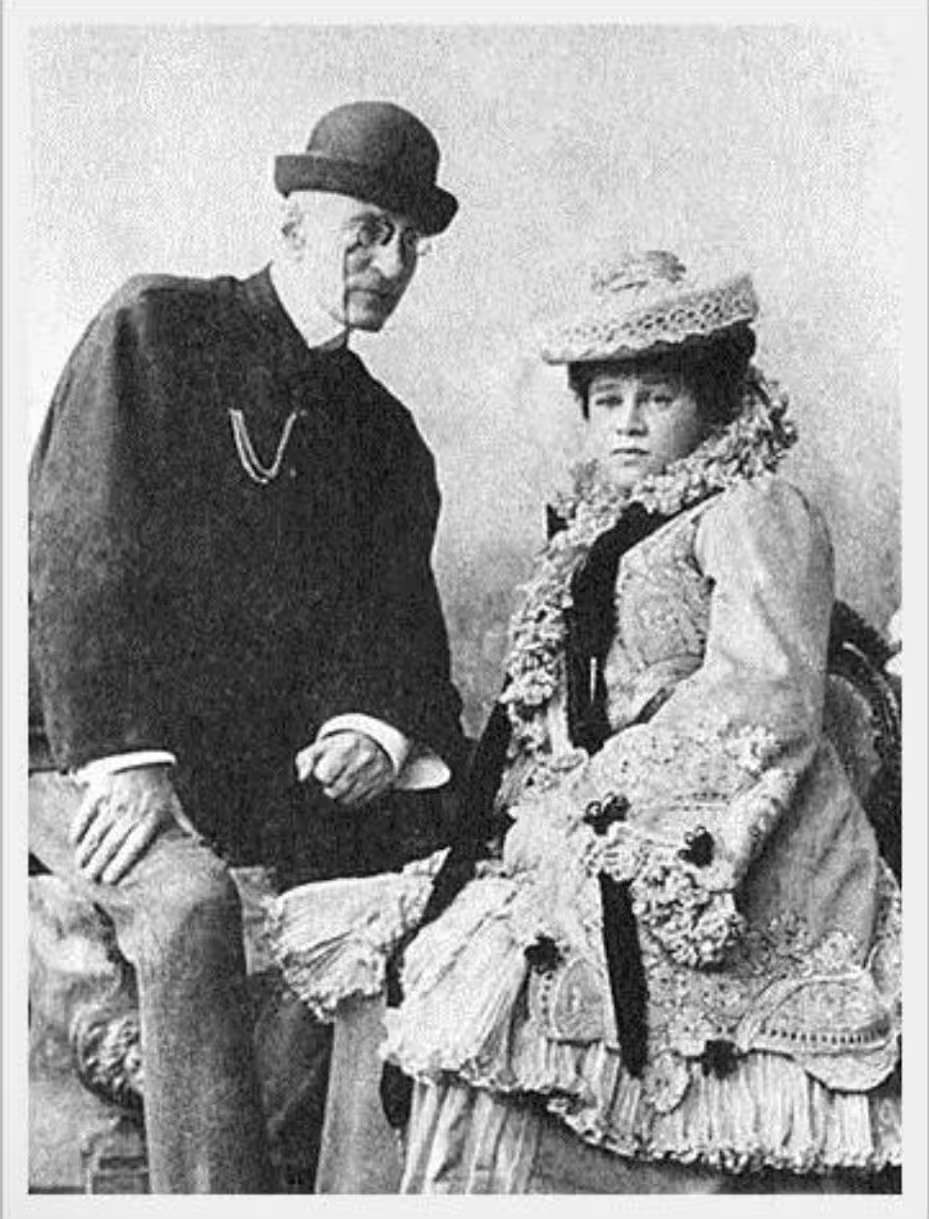
Beyond business, the prince left a lasting architectural and cultural imprint on Tashkent. Allocated RUB 300,000 by the emperor to build a personal palace, he instead used the funds to construct a theater for the city. His contributions extended far beyond entertainment:
- He funded ten scholarships for Turkestan students to study at prestigious Russian universities.
- He paved the streets of Tashkent with stone, modernizing its infrastructure.
- He financed the construction of a theater, a social club, a hospital, a shelter for the needy, and a circus.
- He commissioned the 100-kilometer Emperor Nicholas I Canal to supply water to the Galla-Aral and Jizzakh regions.
His own residence, a grand and elegant palace in the heart of Tashkent, remains one of the city's most iconic landmarks. Today, it serves as the International Reception House of Uzbekistan’s Ministry of Foreign Affairs.
Reflecting on his legacy, Nicholas Konstantinovich once wrote:
"My desire is to revive the deserts of Central Asia and facilitate the government's ability to settle Russians of all classes in these lands."
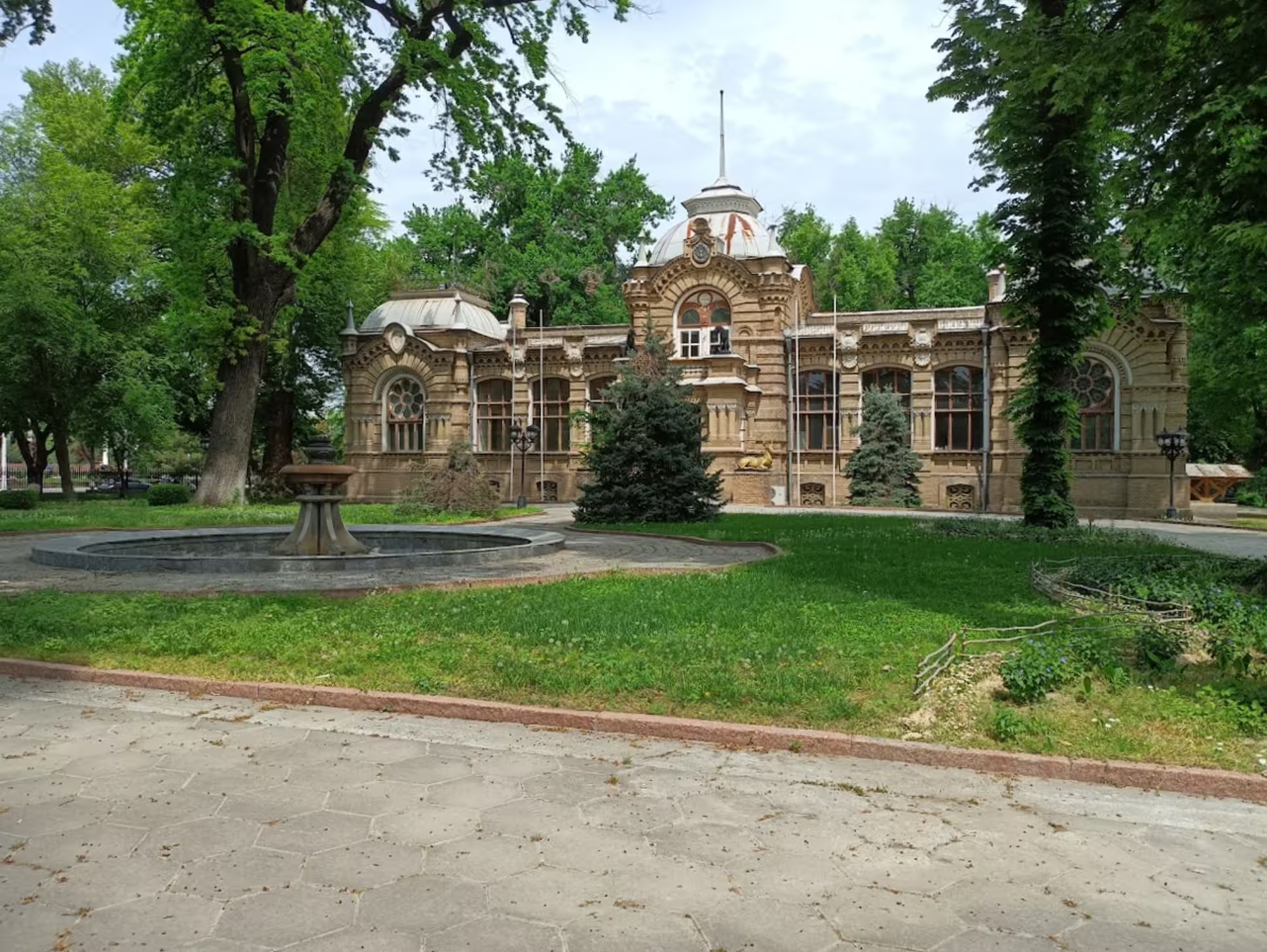
The Final Years and Death of Nicholas Konstantinovich
Following the death of Michael Nikolaevich in 1909, Nicholas Konstantinovich became the eldest surviving member of the Romanov family. In his later years, he suffered from asthma, and during World War I (1914–1918), shortages of medicine and proper treatment worsened his condition. By 1916, his health had declined significantly.
A supporter of the February Revolution of 1917, Nicholas Konstantinovich sent a telegram to Alexander Kerensky, wishing him success. This public endorsement was widely reported in newspapers. In a symbolic gesture, he even raised a red flag over his house. Kerensky, who had been his neighbor in Tashkent for a decade, knew the prince personally.
After the revolution, Nicholas Konstantinovich was granted full citizenship and traveled to Petrograd, where he reunited with his wife, daughter-in-law, and grandchildren. He was present for the baptism of his granddaughter, Natalia, born in February 1917. However, as conditions in the capital deteriorated and the Provisional Government neared collapse, he relocated his entire family back to Tashkent.
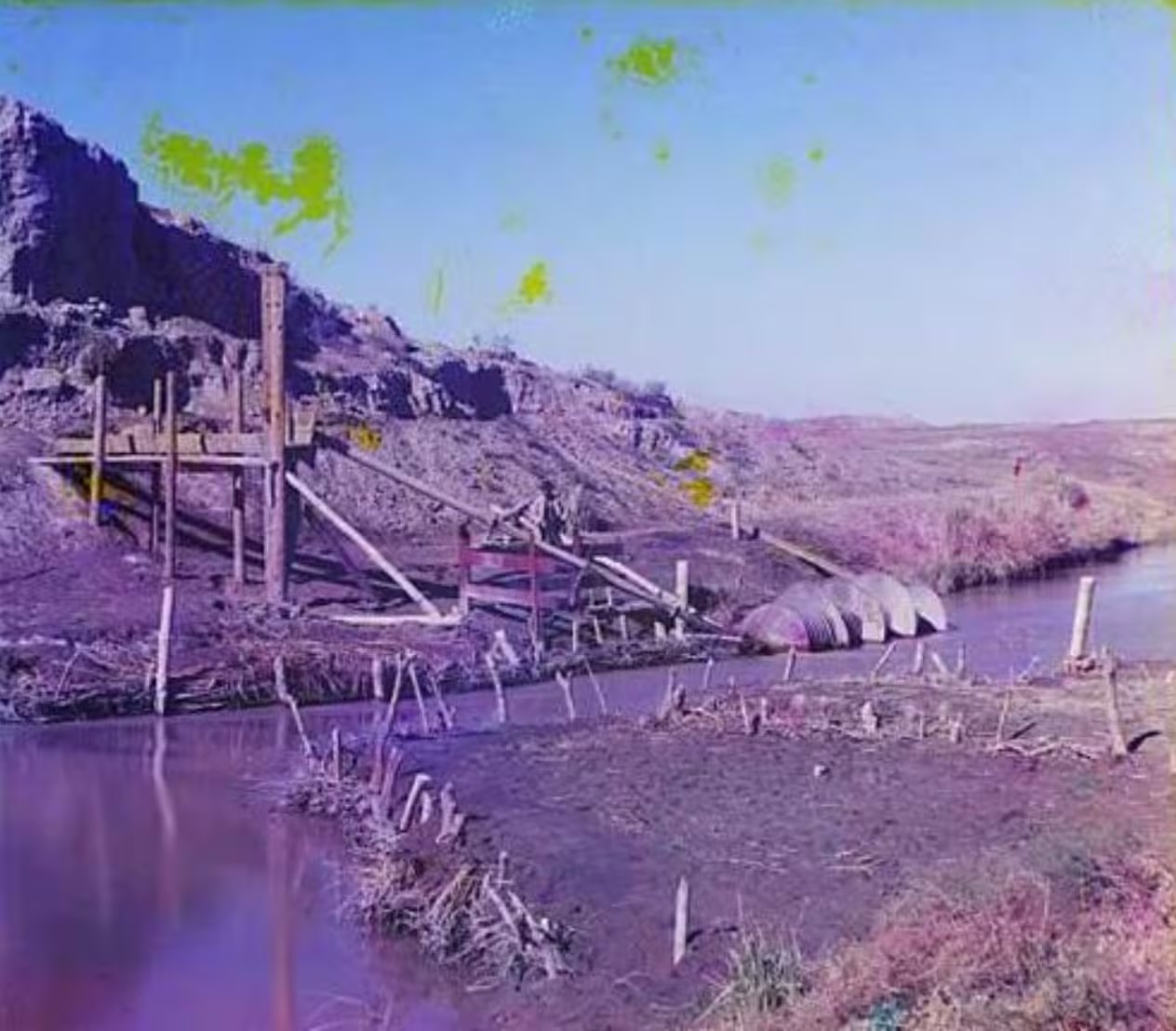
Surprisingly, the Bolsheviks did not persecute him after the October Revolution. Turkestan’s People's Commissar, Konstantin Bravin, even joked during a conversation with the prince, calling him “the highest victim of the bloody regime” and suggesting that this status had earned him a degree of protection.
Despite this, Saint Feofil, the prince’s priest, later claimed that the Bolsheviks had secretly planned to eliminate him. However, fate intervened—Nicholas Konstantinovich died of natural causes before any such plan could be carried out. On January 14, 1918, he passed away from pneumonia at a dacha near Tashkent.
He was laid to rest near the walls of a cathedral, directly opposite his palace—his final resting place in the city that had been both his exile and his home.
The Prince’s Estate and Legacy
Before his death, Nicholas Konstantinovich expressed his wish for his estate to be transferred to the city.
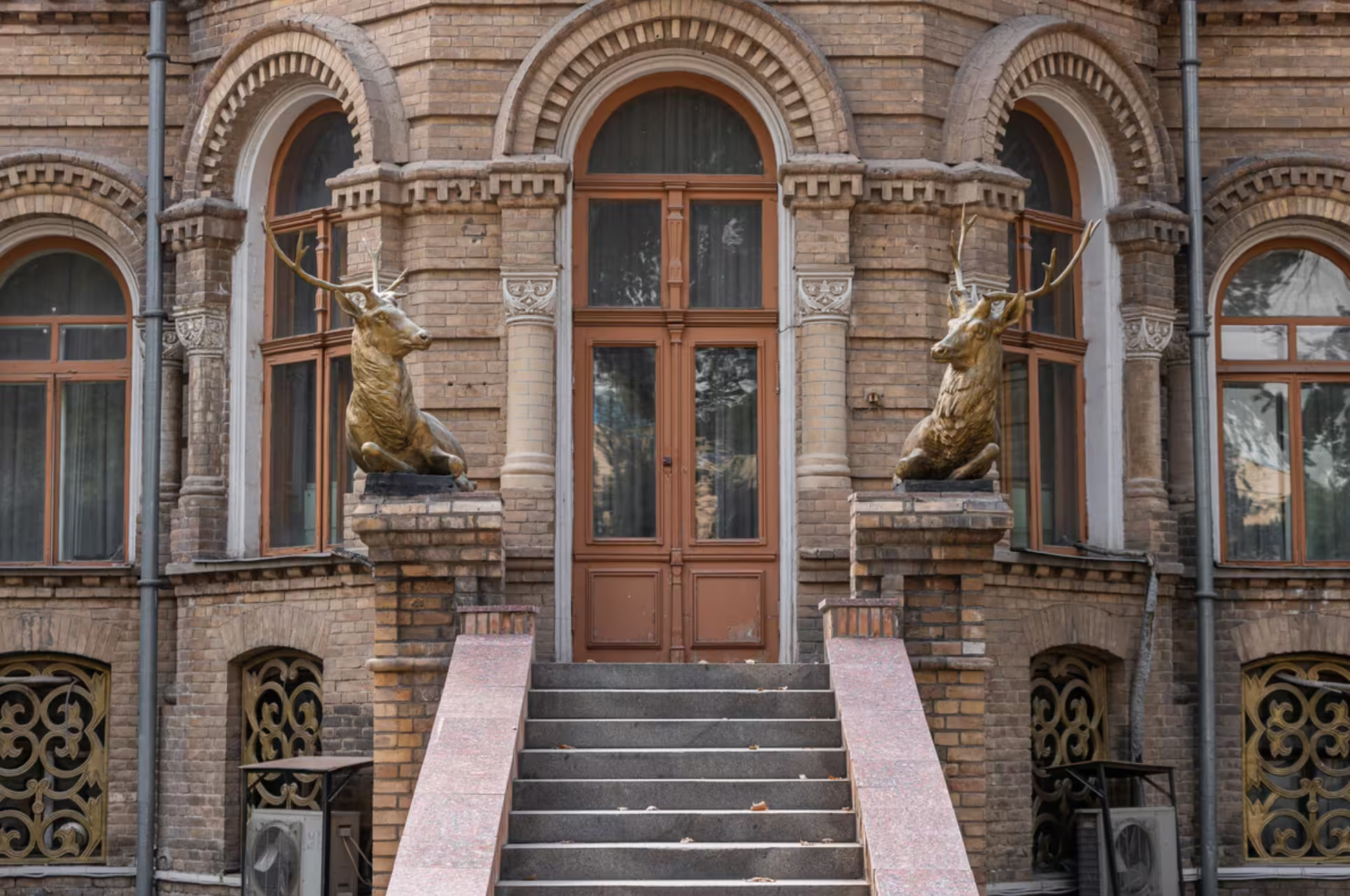
In mid-1916, while addressing the Tashkent City Duma, he reflected on his decades in Central Asia:
"In the spring of 1873, after the capture of Khiva, I first arrived in Turkestan with the intention of spending the rest of my life here, dedicating myself to developing the steppes. Adjutant General Rosenbach, the Governor-General of Turkestan, commissioned the renowned engineer Heintselman to construct a small but elegant palace for me in Tashkent, opposite the Iosif-Georgiev Church. Over the years, I filled this residence with rare artifacts, historical portraits, paintings, sculptures, weapons, and works of art that I had collected since childhood. I had long planned to bequeath this collection to my beloved city of Tashkent. I intended to seek permission from the Supreme Ruler so that, upon my passing and that of Nadezhda Alexandrovna, this museum would be placed at the city’s disposal—provided the people of Tashkent were willing to accept it."
The prince's collection of European and Russian art, transported from St. Petersburg, became the foundation of Tashkent’s first art museum, established in 1919. Today, it remains one of Central Asia’s largest and most significant museums, housing an extensive collection of European masterpieces.
In a remarkable discovery in January 2019, a hidden treasure worth over $1mn was found in the basement of Nicholas Konstantinovich’s palace. The trove contained rare works of art, gold and silver coins, antique dishes, paintings, icons, and precious metal artifacts. These valuable items were declared historical monuments and placed under state protection, enriching Uzbekistan’s cultural heritage.
Follow Daryo's official Instagram and Twitter pages to keep current on world news.
Comments (0)